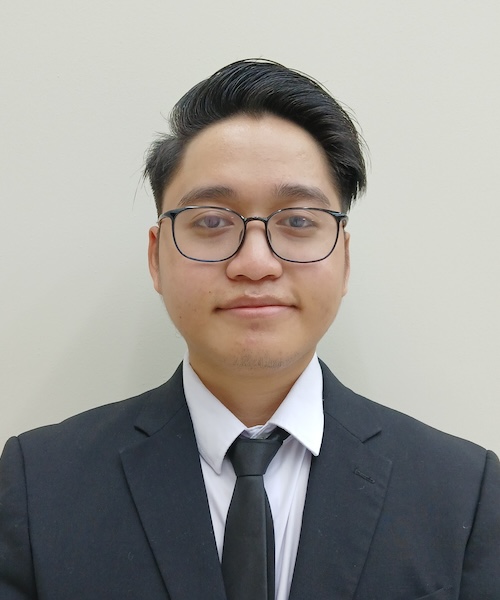“Think Globally, Act Locally.” This powerful quote was from Patrick Geddes, a Scottish biologist, sociologist, and urban planner. My journey through the Global Citizenship program is mainly based on this ideology. The essence of being a global citizen is to contribute to our vibrant and dynamic communities and to act responsibly towards all of humanity. Since ancient Greece, this movement has been prominent. As civilizations expand and cultures intertwine, the need for empathy, sympathy, and compassion becomes imperative. Throughout the eras, we have witnessed a myriad of disasters and catastrophes. In the world of chaos, I’m privileged to acquire the mindset of global citizenship, which I can cascade to my local community. The exposure to the cultivation of global citizenship in this program has inspired me to serve without any biases.
During the International Association of Jesuit Universities (IAJU) Global Citizenship Fellows Program, what amazed me was the diverse cultures of my peers, from whom I gained different opinions about global citizenship. Before I joined the program, I had learnt some of the principles of global citizenship, and these basic principles connected the dots and made even more sense as I listened to my friends’ testimonies. The more I listened deeply, the deeper I delved into their shoes. Of all the program activities, what I found most inspiring and encouraging was the In Your Shoes exercise presented by the Berkley Center. This exercise is not just an activity, but also the foundation to establish the frame of mind of empathy. Moreover, it can strengthen us to listen actively while others are expressing their thoughts, so they won’t feel left behind, and they can get involved in the community.
There are tons of variations for adapting this activity, but my favorite one is saying each other's names correctly. This makes each person feel valued and appreciated for their desired way to be addressed, and it also reduces unnecessary conflict. When I was given the task to perform the In Your Shoes activity with a peer on Zoom, it was slightly strenuous to do, due to technical difficulties and my inexperience. However, we managed to deliver the full quality of In Your Shoes dialogue in the end.
As the world population becomes multitudinous, the destruction of the environment and resources is imminent and inevitable. The growing concerns of utilizing resources irresponsibly and recklessly have alerted the world to reconsider our usage. Otherwise, riots and turmoil are forthcoming in the future. To fix this as a global citizen, numerous holistic approaches are required to tackle these issues. From my perspective, the fundamental bedrock of attaining balanced fraternity is the understanding of three dimensions of sustainability: social, economic, and environmental. If not, we might overuse the limits of the planetary boundaries, and the consequences will be adverse. I remind myself often: the earth’s resources are finite. If we consume precisely, they can be enough, not just for me, but for everyone else as well. This mindset reflects one of the Jesuit values, cura personalis, or care for the whole person.
Economically, I now try to assist ethical businesses that practice circular economy principles, helping to preserve resources for future generations. Supporting local businesses that work to reduce environmental impacts should be prioritized. It is imperative that economies grow without causing harm to future generations. For me, it’s not just about money; it’s about impact. Every financial decision we make has the potential to shape demand and support sustainable development.
Socially, we need to embrace all forms of cultural diversity and norms. What I experience is that the social discord that happens nowadays is rooted in not having mutual respect. That’s why I believe in community engagement and global cooperation. Likewise, we must lift our voices for the weaker and vulnerable populations, giving them spaces to create momentum to advance in our society. We must be bold and loud in promoting sustainability, not tomorrow, but today. For me, this is not just a global mission. It’s my mission.
Ultimately, evolving into a global citizen is not that straightforward, but feasible. All we need is to take care of our responsibilities, one by one, and not rush, recognizing our interconnectedness and denying the misconception of differences. These global problems are no longer happening locally, but on a worldwide scale. Ignorance of environmental deterioration must not be neglected as long as we dwell on this earth. Therefore, we must lead by example: make sustainable choices, practice the 3R's, encourage eco-friendly policies and businesses. Let me conclude with a question: Do we want future generations to live in the piles of waste, or leave them with a utopia where they enjoy the best quality of human life?

